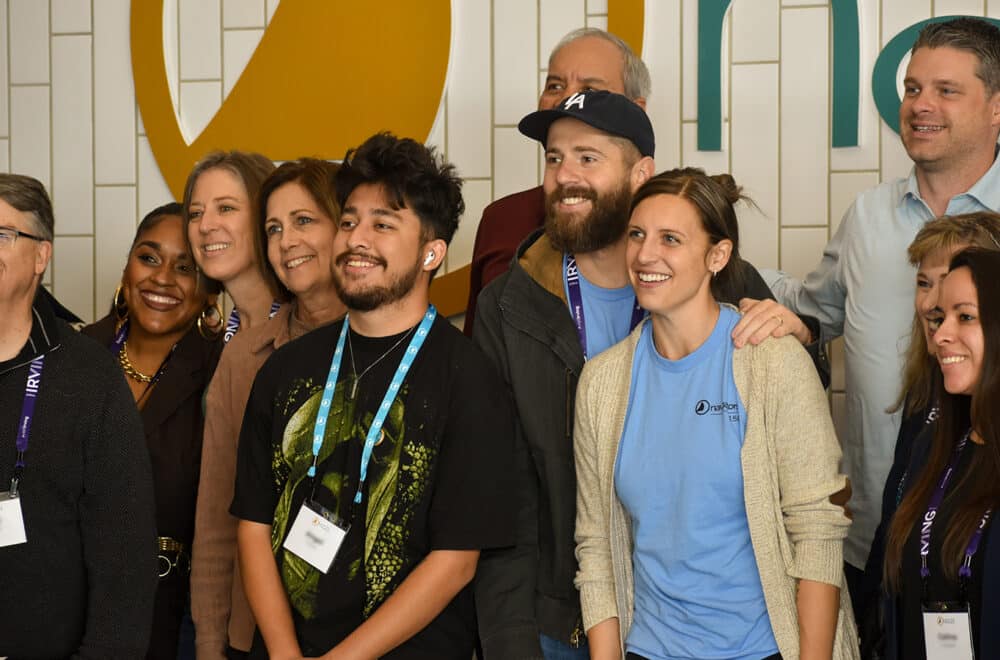By Bill Hull and Brandon Cook

A spiritual practice is anything that shapes our body and soul to live the good life, as Jesus taught it. Core spiritual practices are, among others: reading Scripture, praying, observing Sabbath, fasting, living in community, practicing hospitality, and telling the story of God.
But how do they transform us? Dallas Willard loved to ask, “How does one naturally become a good person?” This question is at the heart of all spiritual life, since discipleship is always about becoming a new creation. First, we must understand how, scripturally speaking, transformation happens. It certainly does not happen just because you engage in religious activity like prayer or Bible study, as Jesus Himself makes clear (Matthew 6:7). So how—biblically speaking—does transformation occur?
Willpower and Working Hard
One way of understanding transformation is that we are changed by willpower and working very hard to make good choices. By these efforts, we can shape our souls. And there is some truth to this. Paul tells us to run with all the discipline of an athlete (2 Timothy 2:3-7). There is great effort in the spiritual life, as Scripture makes clear. We absolutely can change our behavior, maybe even the way we think, by trying hard at it. For example, if you are constantly tempted to overeat or to watch pornography or to gossip, you can experience some level of change by applying more willpower into moderation, abstinence, or keeping your mouth shut. You may find peace in the results of this behavior and be motivated to continue.
Willpower, powerful as it may be, is limited. And, in fact, willpower can devolve into a religious game about the effort and appearance of trying to do the right thing. We get so caught up in our own efforts to be good that we come to think of ourselves as good, and we get offended at any notion to the contrary. Not when we’ve worked so hard. Jesus constantly warns about this trap in His parables (such as the older brother in Luke 15:11-32).
Coming to God
Jesus offers a different—counterintuitive—method of transformation. You are transformed by coming to God and being held by God, but you don’t come to God by being strong or by proving how great you are. You come to God by your failure, brokenness, and weakness. You don’t come to God by getting everything right; you come, in practical terms, by realizing you are not going to get everything right. But this takes a great deal of trust! In fact, it is this trust that transforms us. Or rather, God transforms us as we trust in Him. This requires a shift from self-focus to God-focus, which leads us to others-focus, which is the simplest formulation of discipleship. A disciple learns to focus on God and others, losing their small, protective, self-focused life in the process.
Scripture continually emphasizes our need to be aware of our weakness because it’s only in a posture of dependence that we can trust God and thereby leave behind our small, self-focused life. As Paul said, “I am glad to boast about my weaknesses, so that the power of Christ can work through me” (2 Corinthians 12:9 NLT). He is picking up the theme that Jesus first taught: “Blessed are the poor in spirit, for theirs is the kingdom of heaven” (Matthew 5:3). Blessed are you when you are poor and are aware of it. This is a counterintuitive notion of what “being blessed” is! It’s part of Jesus’ upside-down Kingdom. It takes trust to let God hold us when we are aware of how very weak and in need we are.
Paul also picks up on Jesus’ theme of the inability of religious practice to transform us. In the book of Romans, he says that the Jewish law (the Torah) was good and necessary. It taught Israel, for example, that they lived in a moral universe (Romans 7:1-13). It taught them about morality and that there is such a thing as sin. But the law could never transform Israel. In Galatians, Paul says it succinctly, declaring the law a “babysitter” (Galatians 3:24). This is an incredibly provocative statement for an Orthodox Jew to make. The law, after all, was at the center of Jewish life and ritual. But Paul recognizes that the law is only a stage in development. After all, what does a babysitter do? They help you mature until you can take care of yourself. In the spiritual life, the law teaches you that you are never going to become good on your own, so you can finally become good in God. Receiving God’s love is what makes your heart free and good. Allowing God to accept and adopt you when you are unable to keep the law is incredibly humbling.
Trust that Transforms
Trust is always the key to transformation. We are transformed when we trust who God is and what God says. We are transformed when we hold on to hope amid pain and suffering.
Trust does transform us. But trust often becomes tangible and transformative only in the face of some struggle or sorrow. As David Brooks says, “If you ask anybody, ‘What’s the activity that you had that made you who you are?’ no one says, ‘You know I had a really great vacation in Hawaii.’ No one says that. They say, ‘I had a period of struggle. I lost a loved one. I was in the Army. And that period of struggle or that period of toughness made me who I am.’”
Struggle makes us confront our deep fears—that God is far off, that He is angry, that He doesn’t love or see us—and put them to death. In the process, we learn to trust in a different reality in which God is present and near to us in all things. Many people are converted to Christ in a flash of understanding about who God is, but all of us are being continually converted, always coming into a deeper understanding of God’s goodness. It’s this increased vision of God, which occurs as we trust, that transforms us from the inside out.
Excerpt from The Cost of Cheap Grace: Reclaiming the Value of Discipleship, by Bill Hull and Brandon Cook. Used by permission of NavPress. Releases January 2020, to preorder visit navpress.com or call our publishing partner Tyndale House toll free 1-855-277-9400.




” When we confront our weakness and pain, it was to cover them up -with tragic results in our own lives and those we sought to disciple. Now, in older age we are learning the value of weakness, mourning and confronting our pain and brokenness.” ~ ~ Yes, one of the dangers of not watching closely to Satan’s schemes is we fail recognize when he is attacking. We need to warn/teach new believers of Satan’s attack and give examples. Even in wildlife birds and animals protect and guard against ‘attackers of the young.’ Prayer, continual conversations and our own personal experiences are healthy Spiritual Lessons.
Around the Navs we have not done well in teaching and modeling the benefit of weakness. Many of us came out of military environments and were trained to be tough, and we passed it on. When we confront our weakness and pain, it was to cover them up -with tragic results in our own lives and those we sought to disciple. Now, in older age we are learning the value of weakness, mourning and confronting our pain and brokenness.
In it, we find the Great Comforter, and begin to see the power of God at work in – and through – us. We find, perhaps to our surprise, that those we seek to serve are broken and hurting at least as much as we are. And that the people of God we find in the Scriptures have already walked these paths in the lives with God.